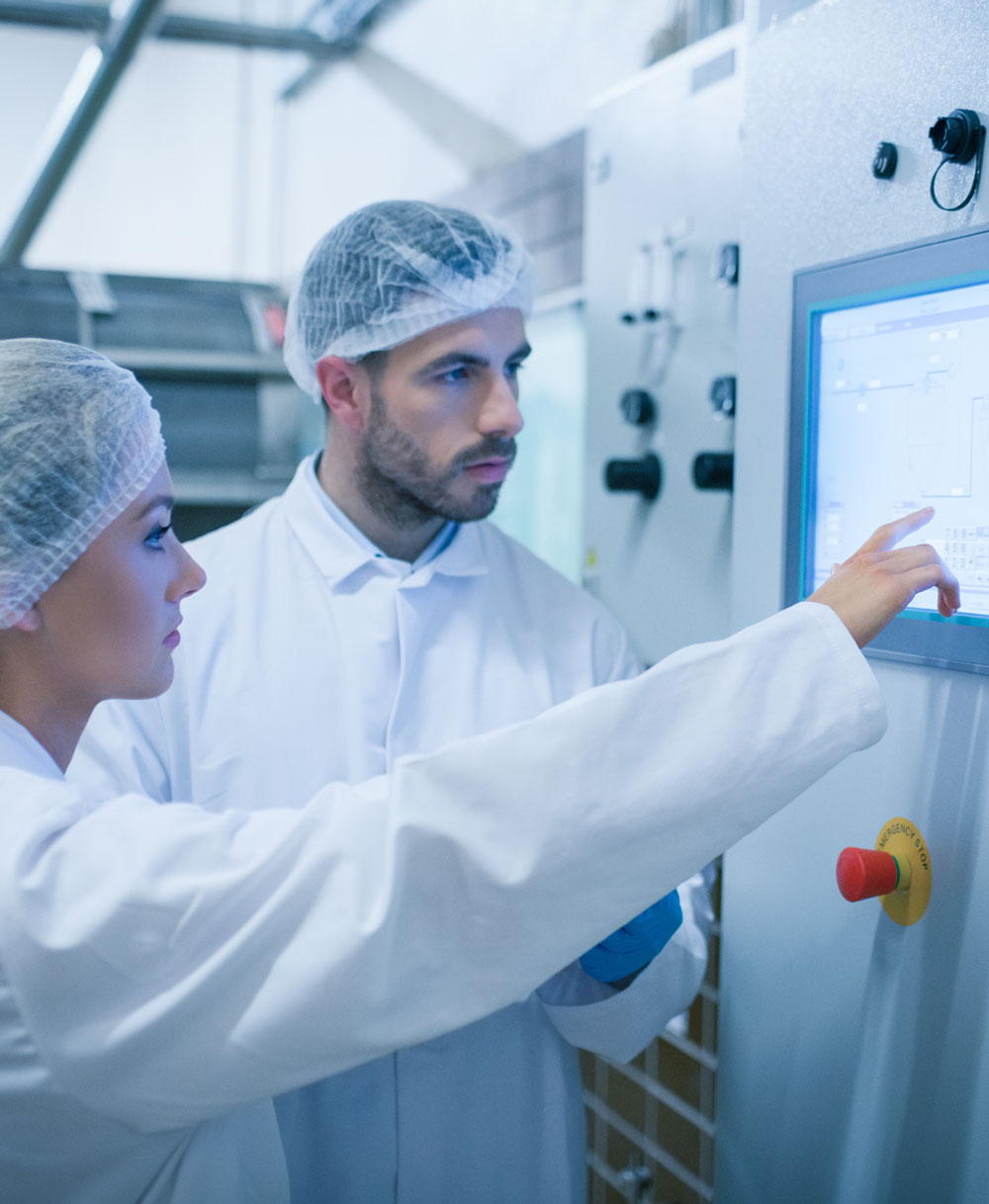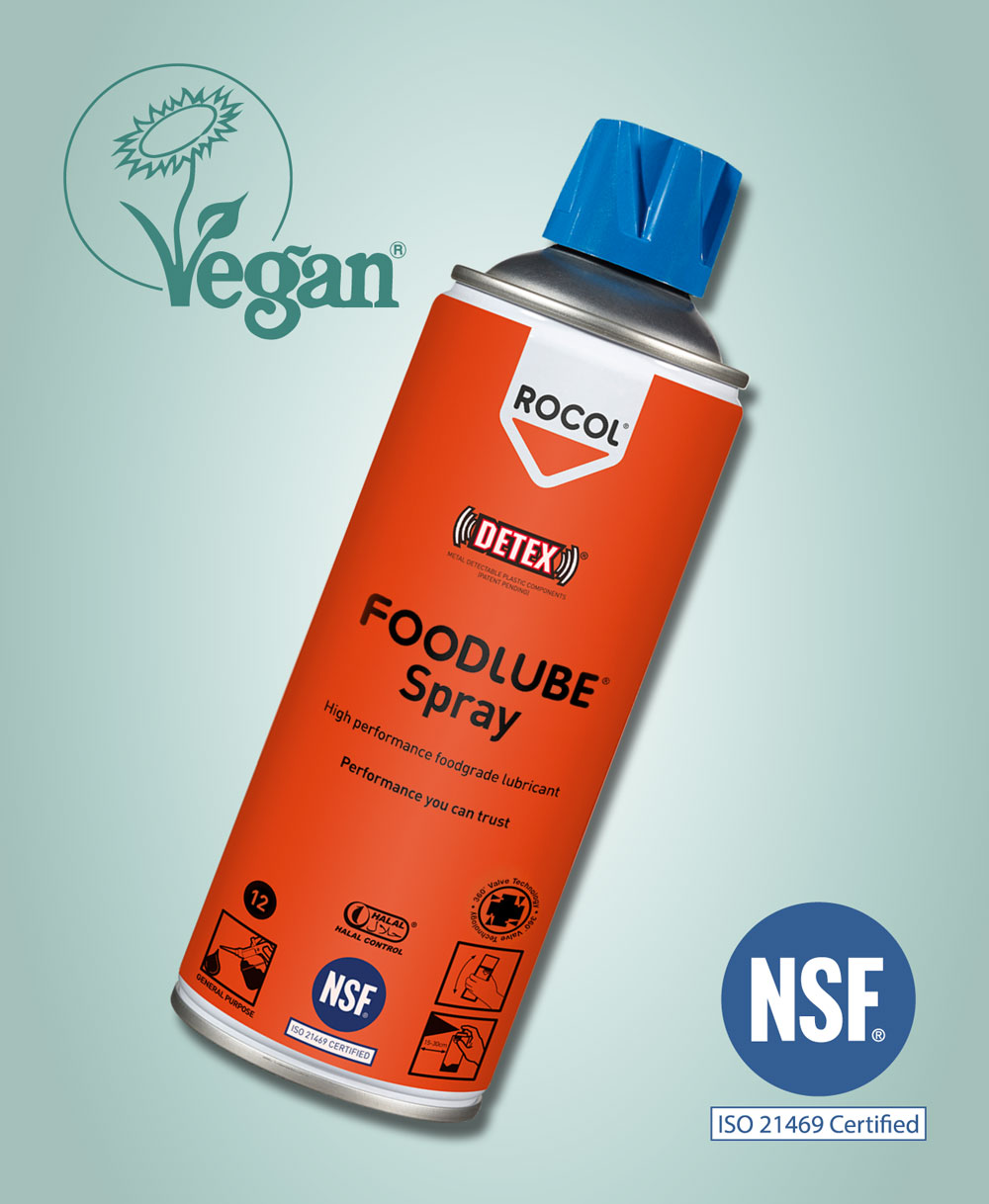In this article
Machines can be vegan too
Vegan food production isn’t only about what goes into the food, but also what goes into the production equipment during maintenance.

With one in eight Britons now vegetarian or vegan, food producers are ramping-up their vegan food production to meet demand. So being able to substantiate vegan food claims is becoming increasingly important. But what are the good manufacturing practices for vegan products, to help maintain the integrity of vegan production lines?
Behind the label
Vegan food consumers are looking for products that contain no animal products or ingredients. That means, for manufacturers, avoiding the risk of cross-contamination with animal-derived ingredients during production is essential.
Then, once the products reach the shelves, product labelling should help consumers to make informed – and safe – choices.
Producers have to ensure their product labelling accurately describes their products – which can be challenging. But for consumers, labelling is more than challenging: it can be confusing and potentially dangerous. For example, for consumers with allergies, the difference between ‘free-from’ and ‘may contain’ on a food label can be the difference between eating something that’s safe for them or that’s a serious health risk.
Perhaps the most widely recognised and accepted certification for this is the Vegan Society’s Vegan trademark. Designed to help people identify products that are completely free from animal ingredients, it currently features on more than 53,000 products worldwide – including cosmetics, food, and drink.

Products displaying the trademark must demonstrate that:
- The manufacture and/or development of the product, and its ingredients, do not involve or have not involved, the use of any animal product, by-product, or derivative.
- The development and/or production of GMOs has not involved animal genes or animal-derived substances. Products put forward for trademark registration that contain or may contain any GMOs must be labelled as such.
- Any dishes that are to be labelled vegan are prepared separately from non-vegan dishes.
From manufacturing to maintenance
Manufacturers already producing vegan and free-from foods, or managing allergens on site, know that establishing robust manufacturing processes for product preparation and processing is key.
However, Best Practice should extend beyond manufacturing and into maintenance. And that doesn’t simply begin at the machine on the production line. It stretches back from the factory floor, to include approved and trusted supplier lists which ensure traceability throughout the supply chain. It also involves setting-up Standard Operating Procedures (SOPs) in line with Total Preventative Maintenance (TPM) or similar quality-led approaches.
Ingredient segregation and storage before production begins are equally important. Last but not least, well thought-out production schedules are instrumental in minimising cross-contact and contamination.
Where dedicated facilities are not available, production scheduling should consider the ingredients in all foods manufactured on all lines involved in vegan food production. Production should then be scheduled with vegan products first, and steps should be taken to ensure that the line is cleaned between the production of foods with vegan and non-vegan profiles.
Lubrication can be vegan too
Anyone involved in food and beverage production knows about the safety and traceability benefits of using food-grade lubricants and cleaners. Looking for the relevant NSF registration on products selected is nowadays almost second-nature.
However, did you know that there are also lubricants available that have been independently certified as vegan?
Using a vegan certified product on your machinery as the alternative to a standard lubricant will support and enhance your vegan manufacturing credentials. At the time of writing, this recent development applies only to industrial lubricant and cleaning products manufactured by ROCOL. But it means that now, everyone in your team can look beyond ‘food grade’ as a catch-all for food factory maintenance products, and understand which products are suitable for which applications.

So when you’re looking for maintenance products for vegan manufacturing machinery, don’t just look for the relevant NSF approvals. Look for the Vegan trademark alongside. And just as importantly, remember to look for a lubricant supplier who can offer not only technical support but also training for your maintenance team, to help them maintain the integrity of your vegan production lines.
To find out more about vegan machinery lubrication, take a look at the ROCOL range or get in touch with one of our ERIKS Specialists, please contact your local ERIKS Service Centre, who will be happy to discuss your options.
#Rocol #ERIKS #LetsMakeIndustryWorkBetter #Lubrication #Vegan #VeganCertified #Foodlube

